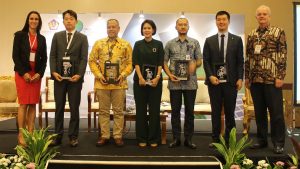Eco-Friendly Tourism Is Gaining Craze in Indonesia
Eco-friendly travel, also known as sustainable tourism, has gained significant traction in Indonesia. Renowned for its breathtaking landscapes, abundant biodiversity, and cultural history, Indonesia is a fantastic travel destination for eco-conscious tourists who wish to lessen their environmental footprint. This article investigates this trend among travelers visiting Indonesia, outlining key ecotourism initiatives and their benefits for local communities.
Eco-Friendly Travel
As global awareness of environmental issues grows, more travelers are turning to eco-friendly travel to experience the world. Indonesia, with its diverse ecosystems ranging from tropical rainforests to coral reefs, is an ideal destination for eco-minded visitors seeking sustainable ways to travel the globe. In particular, ecotourism in Indonesia involves reducing one’s ecological footprint, supporting local communities, and safeguarding cultural heritage.
Notable Eco-Friendly Destinations in Indonesia
Indonesia has earned international renown for its commitment to sustainable tourism. Bali, in particular, has experienced an explosion of eco-resorts, organic farms, and wellness retreats that prioritize sustainability; Ubud serves as an epicenter of eco-friendly accommodations and activities, including yoga retreats and organic cooking classes.
Lombok and the Gili Islands are popular ecotourism destinations. On Lombok, motorized vehicles are banned; resorts use renewable energy sources and actively participate in coral restoration initiatives. Flores’ Komodo National Park works to preserve endangered Komodo dragons and their surrounding marine environment.
Tourism for Community Building
Community-based tourism in Indonesia is an integral component of ecotourism travel. This approach engages local communities directly in the tourism process to ensure economic benefit and cultural respect are preserved. At locations like Tana Toraja in Sulawesi or Mount Bromo villages in Java, travelers can stay in homestays, attend traditional ceremonies, and learn about local customs directly from residents themselves.
Joint Government and NGO Initiatives
Indonesia and various NGOs have been actively encouraging sustainable tourism through programs like the Sustainable Tourism Development Project and Ministry of Tourism initiatives to certify eco-friendly accommodations and promote responsible practices among tourism operators.
Obstacles and Opportunities
Although eco-friendly travel in Indonesia has grown increasingly popular, increasing tourism can present serious obstacles. Increased pressure can strain natural resources and local communities if not handled responsibly, with issues such as waste management and over-tourism requiring attention. Infrastructure improvements are also essential considerations for ecotourism initiatives in this region.
Indonesia presents immense opportunities. As more travelers emphasize eco-friendliness in their travel plans, eco-friendly accommodations, tours, and products have an ever-increasing market. By investing in sustainable practices and highlighting lesser-known destinations as hubs of ecotourism development, Indonesia can position itself as an innovator of ecotourism tourism.
Indonesia and Eco-Friendly Travel
Indonesia holds tremendous promise for eco-friendly tourism. The country can attract new generations of responsible travelers by boasting unique natural and cultural assets. Promoting sustainability, protecting the environment, and engaging local communities are vital to ensuring that tourism benefits both visitors and residents of Indonesia.








Post Comment